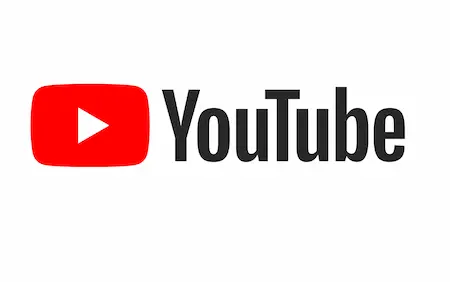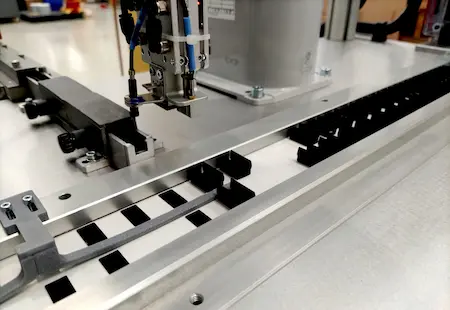
September 30th this year was a special day for us.
We organized an event, reserved for our team, to celebrate BMP’s long journey, thank our employees for their dedication and present our Vision to all the staff.
Right from the start, when thinking about a “main theme“, in the search for a “main theme” we thought of an often recurring parallel, that with sport.

The similarities, analogies and affinities between the world of sport and that of work are so many and fitting that it would be difficult to list them all, so we have chosen to follow this line to organize a day which, “on the common thread of sport”, could, in reality, highlight the strengths of a solid, successful and future-oriented company.
It wasn’t difficult to associate a face with this choice.
A few months ago, in fact, our Mauro Granaglia (CEO) and Giuseppe Maffè (Commercial Director) had the opportunity to meet in person one of the most incredible athletes that the Italian sports scene has ever boasted: Maurizia Cacciatori.
Maurizia was born in Carrara, daughter of art (ed. her father was a footballer) and became passionate about volleyball from a very young age.
She made her debut in Serie A1 at just 16 years old, boasts more than 200 appearances for the national team and contributed, together with her teammates, to the first qualification of the Italian women’s national volleyball team for an Olympics.
Today Maurizia works as a “Motivational Speaker” even if this definition seems a little reductive to us. What Maurizia actually does is bring her experience as an athlete, woman and mother into corporate realities.
As she herself says “(…) Today I am aware that the great legacy that volleyball left me was not the cups or medals won but the great sense of responsibility, courage, inclusion and trust in one’s team.”

Our day began by walking through the rooms of the wonderful Villa Visconti Borromeo Litta in Lainate, a small jewel that has survived history and the course of events which, thanks to the care of the owners, over the years, has maintained much of its beauty and incredible historical value.
We kicked off the event by briefly retracing the history of BMP, from 1992 to today.
Thanks to the anecdotes of the older members [and some photos that we really don’t feel like reproposing], guided by the voice of Riccardo Marangoni (Co-Founder & Chairman), we took a leap back more than 30 years seeing, in just a few minutes, the enormous change that has occurred in the last thirty years.
We virtually retraced the old corridors, walked in the factories that are now too small and saw the lathes and die-cutting machines from which it all began.
Having overcome the past, however, the moment of the present and, above all, of the future has arrived.
Accompanied by the voice of Mauro Granaglia (CEO) and, subsequently, of Maurizia Cacciatori, we were able to explore and delve deeper into two very important concepts for us: Mission and Vision.
The Mission represents the current corporate identity, what we are, what we do every day, the way we do it, while the Vision represents… the future.
Why is it important to have a “Vision”? As Mauro says “Because if you don’t have a vision, you don’t know which direction to take, you really don’t know where to go…”
Our Vision reads “To be a leader in efficiency and well-being, united in offering the best adhesive solutions” and bases its cornerstones on 5 fundamental points:
Proactivity: curiosity, courage and determination to realize the most creative and effective ideas, to make everyone work better.
Collaboration: Actively involving colleagues in decisions and communicating relevant information is a shared responsibility that stimulates collective growth, success and improvement. No one works alone, we can all improve and grow.
Rules: collaborating by respecting the rules, even if they may sometimes seem superfluous, and resolving conflicts is essential for a harmonious work environment, where mutual impact and help in difficulties favor the success of the group.
Excellence: committing to continuous improvement and innovation is essential to pursue standards of excellence and best satisfy customers.
Reliability: being reliable, setting challenging goals and planning the future together, anticipating challenges and adapting to improve the work, promoting autonomy and mutual trust.
As we said at the beginning, comparisons with sport, even more so with volleyball, are almost wasted.

Speaking of proactivity, let’s imagine a player who is preparing to perform a “serve”: she will certainly not have to limit herself to throwing the ball, but will have to observe beyond the net, she will have to relate the positions of her teammates to those of her opponents and try to offer a ball that it can be played at its best.
Likewise, in a company, you must always carefully evaluate your work in order to make their part easier for colleagues. You must not only do well for yourself but also, and above all, think about whether what you are passing on to your colleague will “make their job easier or more complicated”.
Collaboration is closely linked to proactivity: just as you are not alone on a volleyball court, you are not alone in the company.
As work becomes more structured, the way of working also changes. A task that was previously carried out independently can now become a 4 or 6-handed job.
This is because our colleague’s ideas may be better than ours.
By working synergistically between colleagues, we can arrive at a solution sooner or, often, we can evaluate solutions we would never have come up with on our own. Our payoff “We work in team” also says it.
We now come to the point of the Vision which, over the years, has caused quite a few nerves: the rules. From an old-fashioned and short-sighted perspective, rules can appear like ties that bridle us, preventing us from expressing our potential.
Obviously this is not the case.
As a company grows, the guidelines must also grow so that everyone can work in a coordinated and coherent manner. Borrowing Mauro’s words: “…the rules are the game patterns, they are the correct movements to perform to win the game“.

All these points are a sort of preparation for the principle regarding excellence. In volleyball, to return to our comparison, it is the spike that scores.
But excellence is not an innate gift. Talent is an innate gift, excellence is trained.
Day by day.
Aiming for excellence means constantly working to achieve improvement. In some cases, large improvements are achieved in a short time with small corrective actions.
In the world of work, especially “if you already play at a high level”, excellence is achieved with constant and tiring daily work.
Excellence is never settling down, it is never thinking you have arrived. Being excellent means thinking you can always do better. In this sense, it also means “optimism”.

The last point of our vision talks about reliability. This value must be achieved both internally, with everyone having trust in each other’s work, and externally, making BMP a point of reference for customers.
Just as it is unthinkable to win a match without trusting your teammates, in the same way it is not possible to work in synergy without trusting (and relying on) your colleagues and collaborators.
Trusting each other is a fundamental requirement to be able to plan future actions and set objectives knowing that we can achieve them, always keeping us united and cohesive.
Maurizia, in telling us about her transition to professionalism, confided in us that things weren’t easy for her straight away: “I was a spiker, I scored 30 points, so mine was done for me. When they called me, they told me, -but how did the match go?- Well… I scored 32 points, but we lost 3 to 0. But I scored 32 points, right?”
The turning point came when the coach chose to change her role to setter. Decision that Maurizia did not take well at all. The thing that disturbed her most was the idea of having to do all the work and then get one of her teammates to score points and, consequently, take all the credit: “I didn’t understand anything at all! [laughs]”
Maurizia was learning what we learn every day: to work in a team. To remember that every gesture you make is not an end in itself but serves to make the team win. In this sense the team does not become the entity that obscures the talent of the individual but, on the contrary, becomes an extension of the individual.
Because it doesn’t mean that where an individual doesn’t get there, the whole team can’t get there together.
We then explored the concept of “Leadership” with all the false myths it brings with it: “I have done many events where I listened extraordinary speakers who presented slides with formulas. This, plus this, divided this, equal… leader … leadership is something that one has inside and is to represent a good example for the people who are next to us.”

We also focused on the conflicts that often arise when many different minds, conflicting thoughts and multiple experiences have to come together.
And when the points of view are all different, we must always remember that the actions may be different but that the objective is common, that the aim of the game is the same for everyone and that what we can do is to all act, united, in a way to reach it.
Finally, Maurizia spoke to us about her last years of career: “Maurizia, you are 27 years old, I am aiming for other athletes and I want you with a different role… like a mother hen, a team coordinator“.
In this case, there were two choices: blind and sterile anger or reinvention.
Becoming aware of a wonderful period that was coming to an end in favor of something else. At that moment Maurizia understood what it meant to be a winner.
Being a winner isn’t about cups, championships, prizes, interviews, points, “The real winner is the one who finds the right balance between exhilarating victories and bitter defeats.”
We too, in our reality, have had to face bitter defeats, the 2008 crisis and the pandemic of the last two years are examples of this, but we have always focused on reactivity and future.
Even in the most difficult moments we always focused our attention on what we had created and not on what we had lost. And focusing on what you have is the first step towards rebirth, towards proactivity, collaboration, rules, excellence and reliability.
As Maurizia says: “Cups are won in training and you go to the race just to collect them.”
BMP Team








